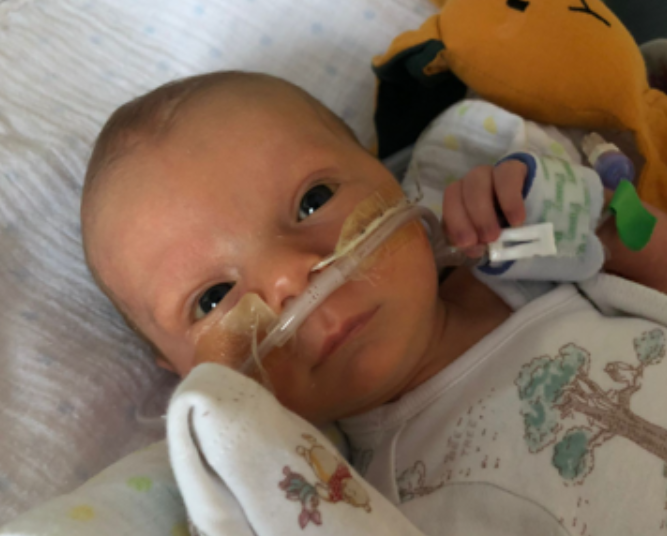The parents of a baby boy who died 14 days after being born by emergency caesarean section have spoken of how they are living a “life sentence” as they called for more openness in the health service.
An inquest has concluded into the death of Orlando Davis, who was born at Worthing Hospital on Friday 10 September 2021 and died at the Royal Sussex County Hospital, in Brighton.
Coroner Penelope Schofield said that neglect contributed to the newborn’s death after his mother developed a rare condition called hyponatremia during labour which went unrecognised.
His parents Robyn, a former midwife, and Jonny Davis, from Steyning, have criticised the response by the health authorities for taking too long to investigate their son’s death, which they fear could put other babies and their mothers at risk.
Mrs Davis, 28, who retrained to work in early years education, told the PA news agency: “I ended up in a coma and I was put in a coma for about three days.
“When I woke up, Jonny told me about what had happened and from that moment onwards my mental health has never been the same.
“We both got diagnosed with PTSD, depression, anxiety, and from a mental health point of view, we’ve never been the same people since it’s happened. I’ve never been able to return to work.”
Mr Davis, 30, said: “Myself and Robyn have been served a life sentence. No matter what the coroner deems it as, when the coronial process finishes, people go back to their jobs, people go back to their families.
“And we will come back to ours but we will come back to … one that will never be complete.”
He said: “We’ve always been a couple that planned to have a large family which we will always feel, no matter how many children, we will always feel that it’s not complete.
“We still have a room in our home that is Orlando’s room that will never be used for anything else.
“And it does feel like there’s this vacuum and void that will never be filled. We have our newest child, Nova. We adore her and there’s people who think, ‘Oh, well you know, they’ve had another child now, I’m sure that solved all of their problems’, and that’s not the case.”
Mrs Davis added: “You can never move on from it because you’ll hit milestones in their life and you think, ‘Oh, they’ll be at this age, they’ll be doing that’ or, ‘Oh by now maybe we would have grandkids when we’re older’ and it’s never ending, it is definitely a lifelong sentence for sure.”
Mrs Davis added that she had stopped working with children because she found it difficult to be around young boys following Orlando’s death.
She added that she still suffers a range of health issues as a result of the injuries she suffered during his birth.
The couple said that they had been frustrated by the health system and the coronial process following Orlando’s death which had led to them fighting for a full inquest to be held.
Mr Davis said: “As the family, at every turn, whether it’s the coronial process, whether it’s a possible negligence investigation, you’re actually continuously subservient to a process that you feel is drawn out and actually just continues to elongate the pain and turmoil that you’re going through.
“We spent two and a half years in purgatory waiting for accountability and we sit there and go ‘Well, in the last two and a half years, what do we think the odds are that another circumstance may have occurred and the public have been at risk?’”
After the inquest’s conclusion, the couple said that they were joining calls for a national public inquiry into maternity care in England.
In a statement, they said: “What scares us, is that this is not an isolated incident and we know of many other families going through this same agony.”
Commenting after the inquest, chief nurse Maggie Davies, from University Hospitals Sussex NHS Foundation Trust, which runs Worthing Hospital, said: “We wish to offer our sincere condolences to Orlando’s family once more for the unimaginable heartache and distress caused by the loss of their baby boy.
“As the coroner noted in her findings, hyponatremia is an extremely rare condition which is little understood. We support her view that there is an urgent need for new national guidelines.
“This tragedy has deeply affected everyone involved in the family’s care, and led directly to us introducing new guidance and training within our maternity service.”








